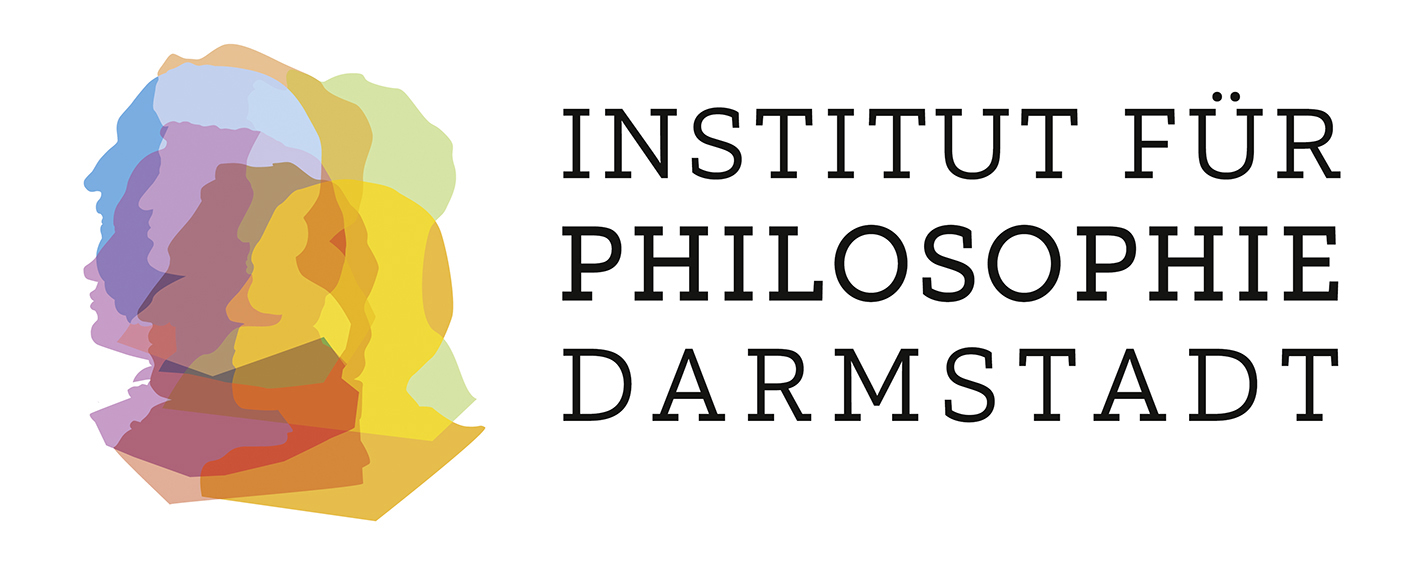Philipp Schmidt
Biographical Note
Since October 2018 I work as a research assistant at the chair of practical philosophy (Prof. Sophie Loidolt) at TU Darmstadt.
From 2007-2014 I studied philosophy and psychology at the University of Vienna. I graduated in philosophy (Mag. phil.) in 2012 with a thesis on the relationship between moral consciousness and selfhood in Kant and Heidegger. I graduated in psychology (Mag. rer. nat.) in 2014 with a thesis on intrapersonal conflicts and their processing in persons with chronic depression. Since 2016, I am working on my PhD in a Cotutelle-program between the University of Vienna and Heidelberg University in philosophy on the phenomenology of selfhood and the role feelings play in its constitution. Several research stays at Heidelberg University, University of Copenhagen and Central European University Budapest. 2013 research assistant at the Sigmund-Freud-Institute Frankfurt (Main). 2014-2015 research fellow in an FWF project on temporal processes of the body in persons with Burnout-syndrome at the University of Graz (PI Prof. Reinhold Esterbauer). 2015-2019 research assistant at the chair of theoretical philosophy (Prof. Matthew Ratcliffe) at the University of Vienna. Since May 2019, I am also research assistant at the chair of theoretical philosophy (Jun.-Prof. Michela Summa) at the University of Würzburg.
Research Profile
- Philosophy of Mind
- Phenomenology
- Philosophy of Psychiatry, Philosophy of Psychology, and Psychopathology
- Selfhood and Identity
- Intentionality
- Feelings and Emotions
Current Research
Generally, I am interested in a broad variety of philosophical and psychological topics that revolve around the question what it means to be a human person in a shared world with others.
Currently, I focus on the study of the phenomenological structure of our sense of self, self-consciousness, and how it may vary in different life contexts. My analyses include the investigation of experiential structures of selfhood such as temporality, embodiment, intentionality (its general structure and different forms), intersubjectivity, and especially affectivity (self-feelings and existential feelings). Moreover, I address questions regarding the relevance of social, narrative, affective and normative aspects for the constitution of personal identity.
I shed light on related issues mostly from the perspective of phenomenological philosophy and current philosophy of mind, but I also draw from classical philosophical authors such as Descartes, Hume, Locke and Kant. Moreover, I complement my philosophical inquiry of selfhood and identity by investigating disturbances of self-experience and affectivity through the lens of psychology and psychopathology.
Talks (since 2018)
July 2019
„Feeling, the Other, and Regulation. Patterns in Borderline Personality Disorder“, DAAD-Workshop Phenomenology of Social Impairments, Heidelberg University, Germany
May 2019
„Self and Sense of Self. Why the Feeling of Being Someone Cannot be a Hallucination“, International Conference First Person-Science of Consciousness, Witten/Herdecke University, Germany
Nov. 2018
“Affectivity, Narrativity, and Pathologies of Identity”, International Conference Phenomenology and Personal Identity, Charles University Prague, Czech Republic
Okt. 2018
Comment on “Inga Römer: Das Begehren der reinen Vernunft. Ethik in phänomenologischer Sicht”, Workshop Phänomenologische Ethik im Ausgang von Kant?, Technical University Darmstadt, Germany
Sep. 2018
“Borderline Personality Disorder and the Sense of Self”, Workshop Multiple Dimensions of Selfhood. Philosophical and Psychopathological Perspectives, Technical University Berlin, Germany
Sep. 2018
“Affect, Dysregulation, and Identity Disturbances. The Body in Borderline Personality Disorder”, Conference Time, the Body, and the Other. Phenomenological and Psychopathological Approaches, Heidelberg University, Germany
July 2018
“Being More than Just One? Plurality within Selfhood and the Structure of Self-
Consciousness”, Workshop Personhood and Selfhood, University of Manchester, UK
May 2018
“For-me-ness, Me-ness, Mineness and the Experiential Flow”, Workshop Perspectives on the Minimal Self, University of Vienna, Austria
Publications
Edited Volumes
Gaitsch, P.; Lehmann, S. & Schmidt, P. (Eds.): Eine Diskussion mit Markus Gabriel. Phänomenologische Positionen zum Neuen Realismus. Wien/Berlin: Turia+Kant 2017. (*title: A Discussion with Markus Gabriel. Phenomenological Positions on New Realism)
Esterbauer, R.; Paletta, A., Schmidt, P. & Duncan, D. (Eds.): Bodytime. Zeitdynamik und leibliche Erfahrung. Freiburg/Br.: Alber 2016. (*title: Bodytime, Temporal Dynamics and Bodily Experience)
Schmidt, P. & Weiberg, A. (Eds.): Einheit und Vielfalt in der Gegenwartsphilosophie. Wien: Peter Lang 2012.(*title: Unity and Diversity in Contemporaneous Philosophy)
Journal Articles and Book Chapters
“The Relevance of Explanatory First-Person Approaches (EFPA) for Understanding Psychopathological Phenomena. The Role of Phenomenology”. In: Frontiers in Psychology. Theoretical and Philosophical Psychology, 9:694, 2018, doi: 10.3389/fpsyg.2018.00694.
“Störungen des Selbst in der Borderline-Persönlichkeitstörung. Der Zusammenhang von Affekt und erlebter Identität”. In: Thiemo Breyer & Thomas Fuchs (Eds.): Selbst und Selbststörungen. Freiburg/Br.: Alber 2019 [accepted and in press]. (*title: Disturbances of Self in Borderline Personality Disorder. The Relationship between Affect and lived Identity)
“Zeit und Leib bei Kant. Ein Blick auf die ‚Widerlegung des Idealismus’ im Lichte von Husserls Phänomenologie der Zeit”. In: Violetta Waibel & Margrit Ruffing (Eds.): Akten des 12. Internationalen Kant-Kongresses ‚Natur und Freiheit’ in Wien vom 21.-25. September 2015. Berlin: De Gruyter 2019, 3591-3599.(*title: Time and Body in Kant. An Analysis of the ‘Refutation of Idealism’ in light of Husserl’s Phenomenology of Time)
“Über die Zeitlichkeit des Leibes und die Möglichkeit ihrer Störung”. In: Reinhold Esterbauer, Andrea Paletta & Julia Meer (Eds.): Der Leib und seine Zeit. Temporale Prozesse des Körpers und deren Dysregulationen im Burnout und bei anderen Leiberfahrungen. Freiburg/Br.: Alber 2019, 273-297.(*title: On the Temporality of the Body and the Possibility of its Disturbances)
“Über die Genese von Empathie als direkter Wahrnehmung fremdpsychischer Zustände. Ein Blick auf das Verhältnis von Simulation, Inferenz und direkte soziale Wahrnehmung”. In: Special Issue of InterCultural Philosophy – Phenomenological Anthropology, Psychiatry, and Psychotherapy in Theory and Practice, 2018, 31-57.(*title: On the Genesis of Empathy as Direct Perception of Other’s Mental States. An Analysis of the Relationship of Simulation, Inference and Direct Social Perception)
“Erscheinungsbedingung und Erscheinung. Transzendentale Motive im Lichte der Sinnfeldontologie”. In: Peter Gaitsch, Sandra Lehmann & Philipp Schmidt (Eds.): Eine Diskussion mit Markus Gabriel. Phänomenologische Positionen zum Neuen Realismus. Wien/Berlin: Turia+Kant 2017, 68-89.(*title: Appearances and their Conditions. Transcendental Motives in the Light of the Theory of Fields of Senses)
“Die Konstitution der ursprünglichen Zeitphänomene: Husserl und die Aporien am Grunde des Bewusstseins”. In: Andreas Oberprantacher (Eds.): Mensch sein – Fundament, Imperativ oder Floskel? Beiträge zum 10. Internationalen Kongress der Österr. Gesellschaft für Philosophie in Innsbruck. Innsbruck: Innsbruck University Press 2017, 229-241.(*title: The Constitution of Primal Temporal Phenomena: Husserl and the Aporias of Consciousness)
Reviews
“Michelle Montague: The Given. Experience and its Content. Oxford: Oxford University Press 2016”. In: Phenomenology and the Cognitive Sciences 2018, doi: 10.1007/s11097-018-9576-9.
“Michela Summa: Spatio-temporal Intertwining. Husserl’s Transcendental Aesthetic. Heidelberg: Springer 2014”. In: Journal für Phänomenologie, 43, 2015, 84-88.


